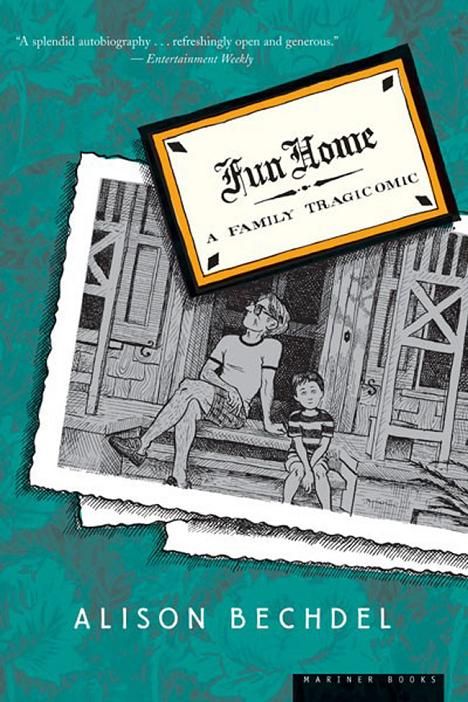Advocacy groups are criticizing a vote by South Carolina legislators to cut the budgets of two universities that recommended gay-themed books -- including Alison Bechdel's graphic novel Fun Home -- to incoming freshmen as an attack on free speech and academic freedom.
“This kind of censorship not only threatens the core of academic freedom but also inhibits the free exchange of ideas so important to progress," Victoria Middleton, executive director of the ACLU of South Carolina, said in a statement issued jointly with South Carolina Equality. "The First Amendment was intended to protect all speech – even speech we don’t agree with -- and politicians shouldn’t be in the business of dictating what we think.”
The state House Ways and Means committee voted 13-10 on Wednesday to cut $52,000 from the College of Charleston, which came under fire last year for its selection of Bechdel's acclaimed 2006 memoir for its summer reading program, and $17,142 from the University of South Carolina Upstate, which assigned Out Loud: The Best of Rainbow Radio, about South Carolina’s first gay and lesbian radio show. The figures represent the amount each college spent on the programs.
During Wednesday's lengthy debate, some lawmakers made it clear the move was in retaliation for the colleges "promoting the gay and lesbian lifestyle" to students. Although Fun Home was recommended, not required, reading, Rep. Garry Smith, a Republican from Simpsonville, insisted the book was still part of the school's curriculum. According to the Charleston Post and Courier, Smith "said the college's message for students who did not want to read it was to 'shove it down your throat anyway.'"
Prof. Christopher Korey, who oversees the College of Charleston's "The College Reads!" program, told the newspaper he's troubled by the House committee's decision: "I'm concerned that some members of the legislature believe their duties include deciding what books should and should not be taught in a college classroom ... I believe that 18-year-olds benefit directly from reading and discussing difficult topics in their courses."
The funds, which the newspaper notes is a "pittance" of the schools' overall funding, could be restored when the full House considers the budget.
A College of Charleston spokesman emphasized that the university changed its selection process for the summer reading program following last year's uproar, with now 100 instead of 50 books being considered using "broader input."


